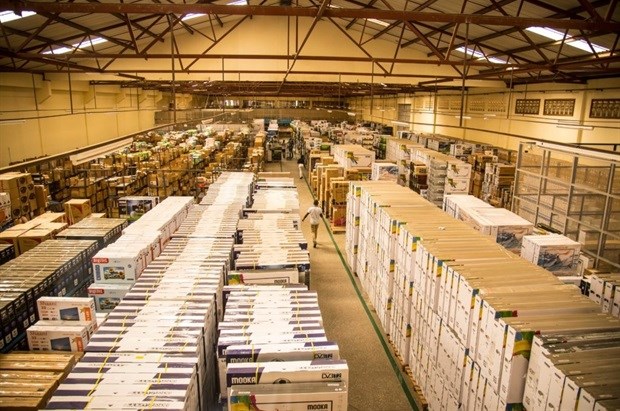Pan-African e-commerce platform, Jumia, has become the first African startup to list on the New York Stock Exchange. The company raised $196-million in its initial public offering (IPO) at the world's largest stock exchange on Friday.

Image credit: Jumia
In a statement, the e-commerce firm said the listing "is the result of a team success", and all of its employees across Africa rang the bell at the same time as the Wall Street ceremony in New York was taking place.
Dubbed 'Africa's Amazon', Jumia started in 2012, with "a mission to improve the quality of everyday life in Africa, by leveraging technology to deliver innovative, convenient and affordable online services to consumers", the company said.
The IPO creates another milestone for Jumia. The company in 2016 became the first African startup unicorn, achieving a $1 billion valuation after a funding round that included Goldman Sachs, AXA and MTN.
Jumia is currently active in 14 African countries with more than 81,000 active sellers transacting online with millions of consumers. The e-commerce platform directly employs more than 5,000 team members in Africa.
African growth story
“This achievement has been made possible thanks to the hard work of our teams, the trust of our consumers, as well as the commitment of our sellers and partners. All stakeholders deserve credit for this milestone, and we are just at the beginning of a long and great journey. We are going to continue to focus on our mission and to work even harder to help consumers, sellers, partners and all stakeholders benefit from this technological revolution,” said Sacha Poignonnec and Jeremy Hodara, Jumia co-founders and co-chief executives.
“It’s an opportunity for retail investors to buy the Africa growth story, the story of a growing consumer class,” said Steven Grin, managing partner of Lateral Capital, a New York-based investment company focused on Africa, according to a Bloomberg report.
“Rising per-capita incomes, an increasingly young and urban population, falling internet and data costs, surging mobile-phone penetration – these favorable long-term trends underpin the rise of the African online consumer.”


























